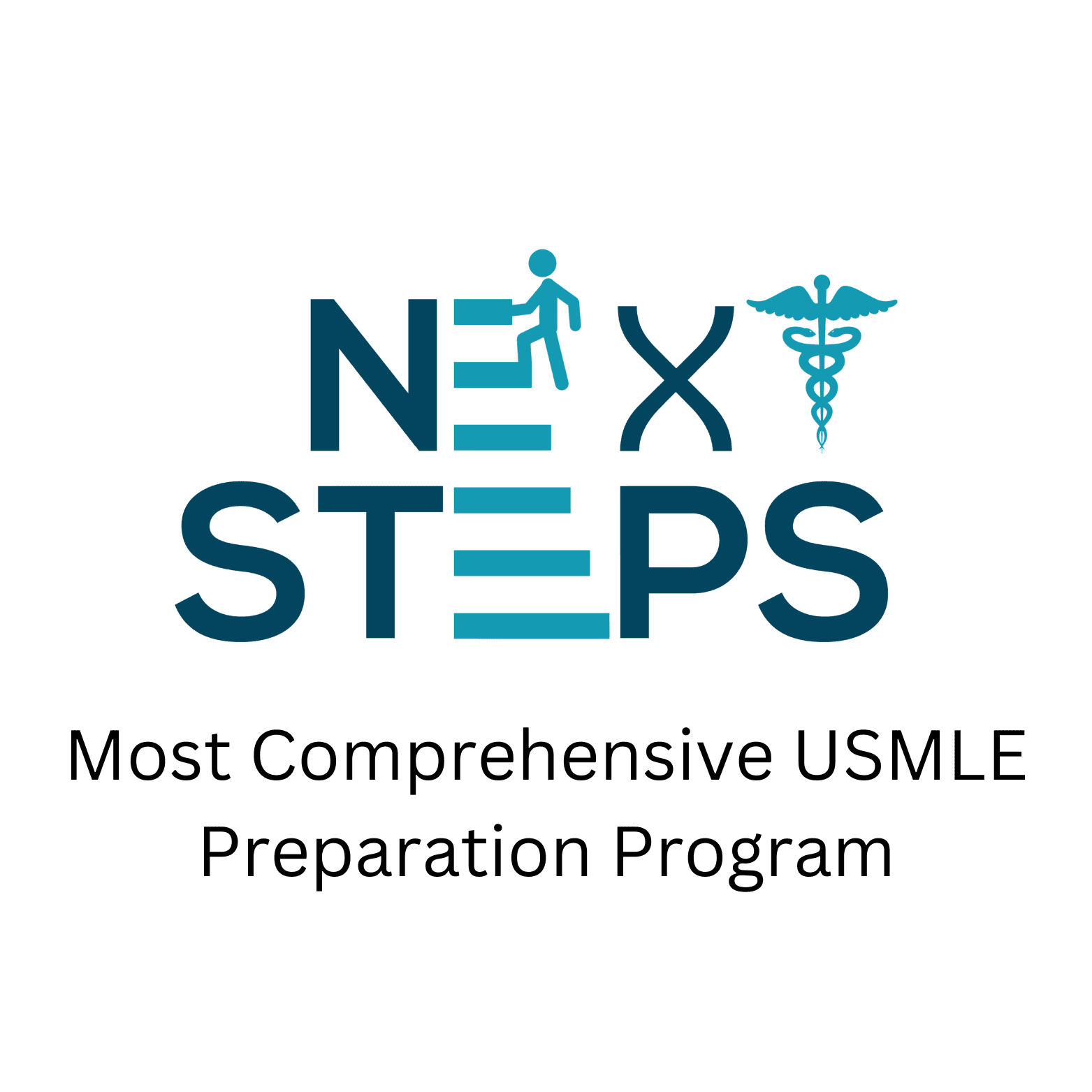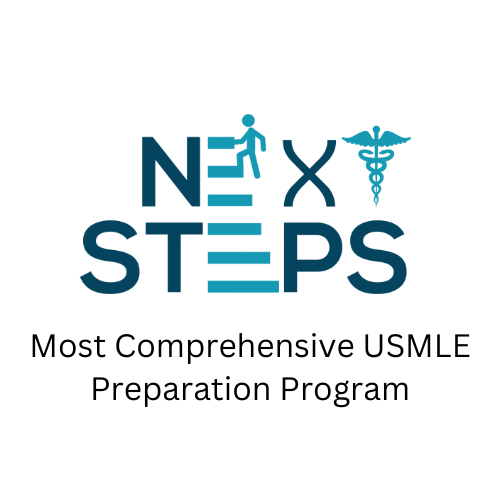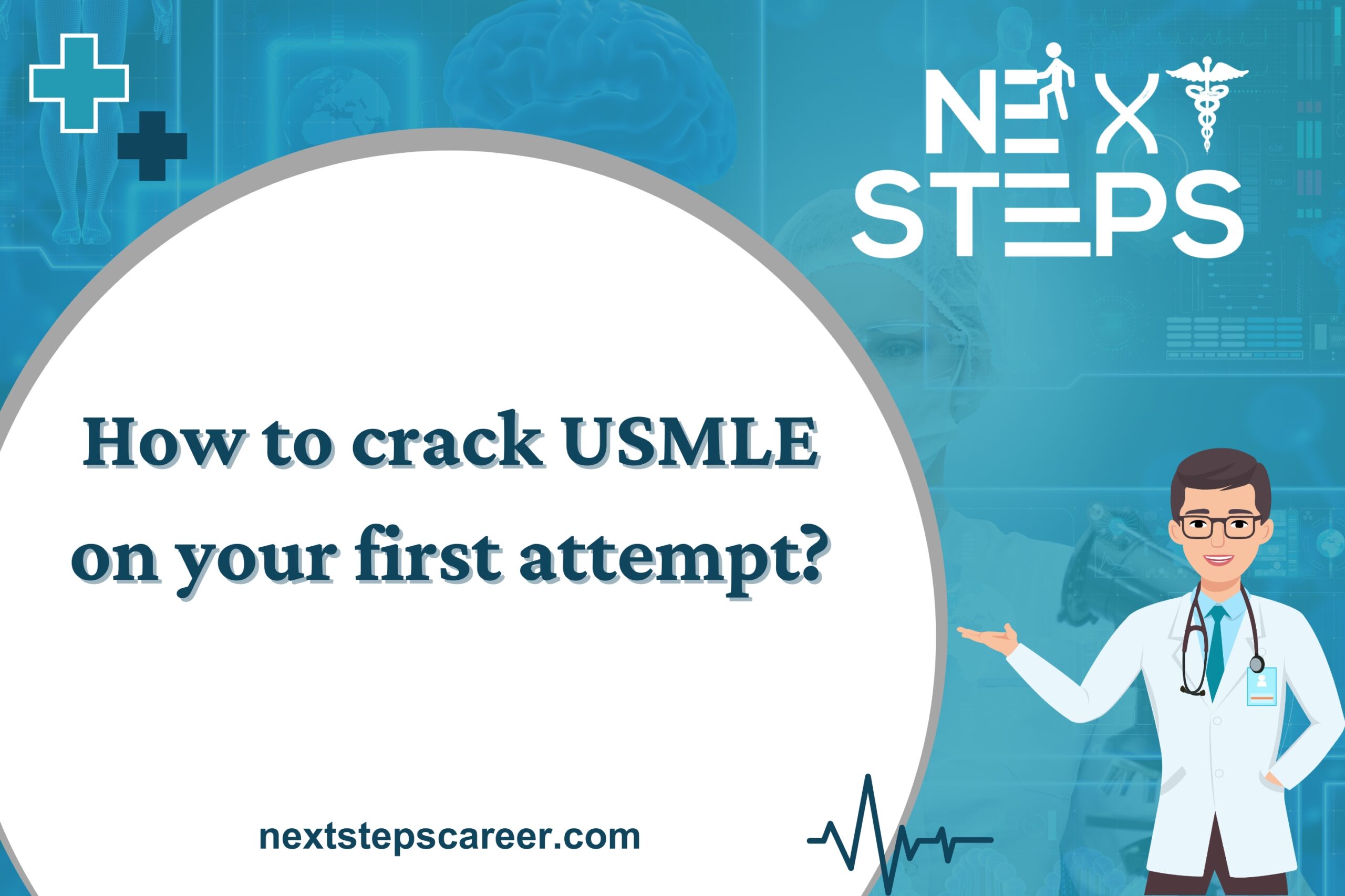How to Crack USMLE on Your First Attempt: Key Strategies for Success
The United States Medical Licensing Examination (USMLE) is known for its rigorous and comprehensive assessment of medical knowledge, clinical skills, and ability to manage patient care. Crack USMLE on your first attempt requires dedicated preparation, a structured study plan, and strategic exam-day techniques. This blog post outlines the essential steps you need to take to maximize your chances of crack USMLE on your first attempt.
1. Start Early and Plan Strategically
Preparation for the USMLE begins long before the exam day. It’s important to plan your studies in advance to ensure you cover all the material thoroughly and give yourself enough time for practice.
Create a Detailed Study Plan
-
- Map out your entire study timeline, including daily and weekly goals. This should include a mix of subject review, question bank practice, and mock exams.
-
- Allocate more time to high-yield topics, but ensure that no subject is neglected.
Set Realistic Milestones
-
- Break your study plan into manageable milestones, like completing a specific section of the syllabus or finishing a set number of practice questions each week.
Pro Tip: A good rule of thumb is to dedicate around 4-6 months of focused preparation, depending on your schedule and starting level to crack usmle on your first attempt.
2. Use High-Quality Resources
Choosing the right resources is critical to your success. There are plenty of review books, online courses, and question banks available, but you should focus on the most trusted ones that provide in-depth content and realistic practice.
Essential Study Resources
-
- First Aid for the USMLE: Considered the bible of USMLE prep, this book is essential for covering high-yield content in an easy-to-digest format.
-
- Next Steps Mentoring App: This is the most popular question bank for USMLE preparation. It not only helps you practice exam-style questions but also provides thorough explanations and reasoning for each answer to crack usmle on your first attempt.
-
- Pathoma: These resources are great for learning pathology, microbiology, and pharmacology through visual aids and video lectures.
Supplementary Resources
-
- Next Steps Mentoring App: For in-depth video explanations of complex topics.
-
- NBME Practice Exams: These practice tests mirror the actual USMLE exam and provide a realistic gauge of your progress.
Pro Tip: Don’t overwhelm yourself with too many resources. Stick to a core few and use them consistently throughout your preparation.
3. Master the Art of Practice Questions
Acing the USMLE requires more than just memorizing facts. You need to practice applying that knowledge to complex clinical scenarios, which is exactly what the exam tests.
Practice Makes Perfect
-
- Begin doing practice questions as early as possible in your study timeline. Use question banks like Next Steps, which simulate the type and style of questions you will encounter on exam day.
-
- Complete questions in timed blocks to get used to working under exam conditions.
Review Your Answers Thoroughly
-
- Focus not just on answering the questions but also on reviewing the explanations for correct and incorrect answers. Understanding the reasoning behind each answer helps reinforce your knowledge.
Pro Tip: Aim to go through Next Steps Mentoring App at least twice, and focus on areas where you consistently perform poorly.
4. Focus on High-Yield Topics
Certain subjects and topics carry more weight on the USMLE, making them “high-yield.” It’s crucial to focus your time and energy on mastering these areas:
Key High-Yield Areas for Step 1
-
- Pathology: The backbone of Step 1, understanding disease mechanisms is essential.
-
- Pharmacology: Know the drug classes, mechanisms of action, and adverse effects.
-
- Physiology and Biochemistry: Understanding normal bodily functions and metabolic pathways helps explain disease processes.
Key High-Yield Areas for Step 2 CK
-
- Internal Medicine: The majority of Step 2 CK questions come from internal medicine topics.
-
- Pediatrics, Obstetrics/Gynecology, Surgery: These specialties are also highly tested.
-
- Clinical Skills: For Step 2 CS (now discontinued), the focus was on patient communication and clinical decision-making.
Pro Tip: Prioritize your weakest subjects, but continue to review the high-yield topics regularly.
5. Take Regular Mock Exams
Mock exams simulate the real exam experience and help you assess your readiness. By taking regular practice exams, you can identify weaknesses and track your improvement.
How to Use Mock Exams
-
- Schedule a mock exam after every 3-4 weeks of preparation to gauge your progress.
-
- Take NBME practice exams close to your actual exam date to get a realistic idea of your potential USMLE score.
-
- Review all incorrect answers and ensure you understand why you made mistakes.
Pro Tip: Start taking full-length mock exams about 2 months before your exam date to build endurance and time-management skills.
6. Manage Stress and Stay Consistent
Preparing for the USMLE is both physically and mentally demanding. To perform at your best, it’s essential to manage stress and maintain a consistent study routine.
Incorporate Breaks
-
- Balance your study schedule with regular breaks to prevent burnout. Make sure you’re taking care of your physical health through exercise, proper nutrition, and adequate sleep.
Stay Positive and Focused
-
- Stay focused on your goals and visualize your success. It’s normal to feel overwhelmed at times, but staying consistent and pushing through challenging days is the key to success.
Pro Tip: Meditation, yoga, or mindfulness exercises can be great tools to help manage stress and maintain focus during your study period.
7. Have a Smart Exam Day Strategy
On exam day, it’s important to be well-rested and prepared both mentally and physically. Here’s how you can optimize your performance:
Get a Good Night’s Sleep
-
- Avoid last-minute cramming the night before your exam. Ensure you get at least 7-8 hours of sleep so you’re mentally sharp.
Time Management
-
- Practice good time management during the exam. Allocate a specific amount of time to each question and avoid spending too much time on any single question.
Take Scheduled Breaks
-
- Use your scheduled breaks to refresh your mind. Drink water, have a light snack, and stretch to keep your energy levels up.
Pro Tip: Familiarize yourself with the Prometric test center and exam-day procedures to reduce any added stress.
Final Thoughts
Crack USMLE on your first attempt is achievable with the right mindset, preparation, and discipline. Starting early, using the best resources, mastering high-yield topics, and practicing regularly are the key elements of a successful strategy. Stay consistent, manage your stress, and remain focused on your end goal. With proper planning and hard work, you can crack usmle on your first attempt and take one step closer to your medical career in the US.





